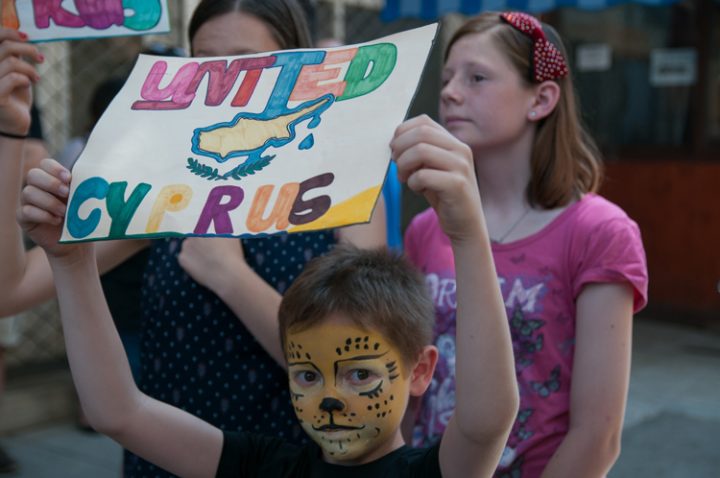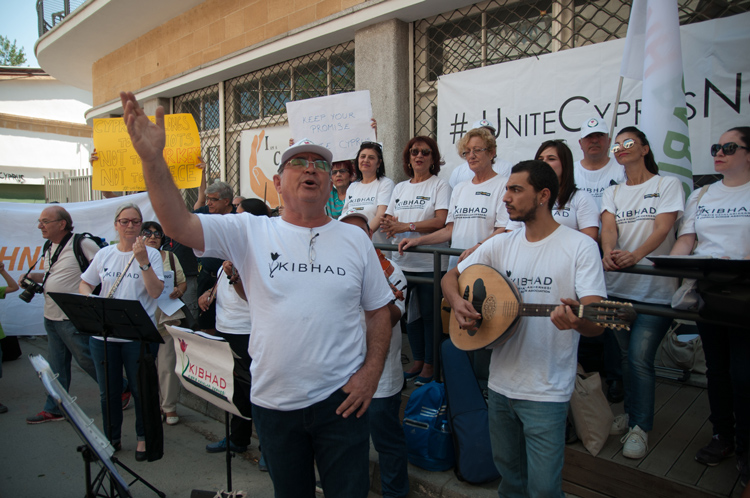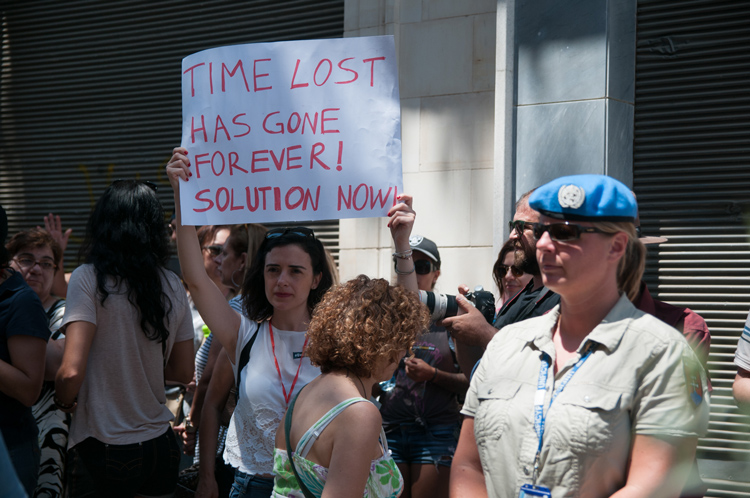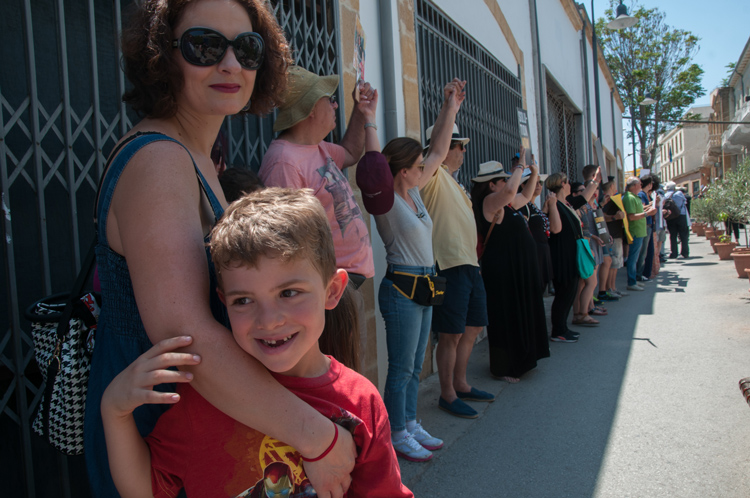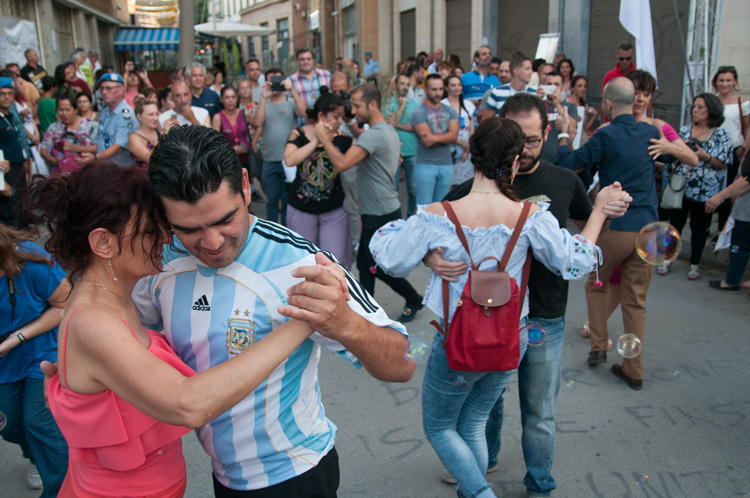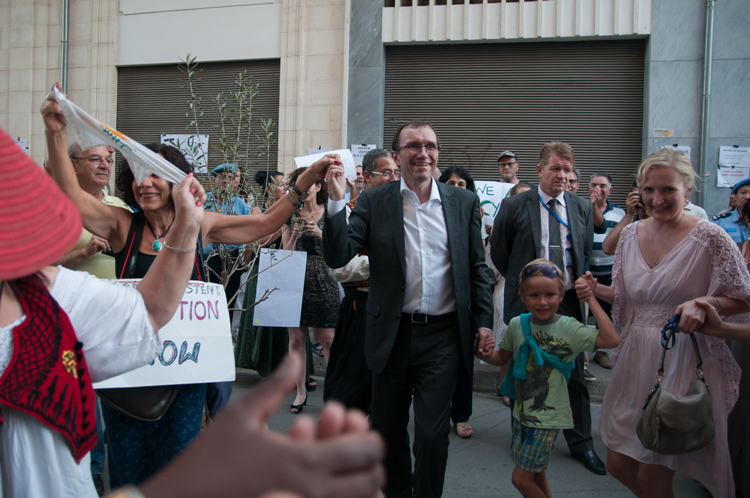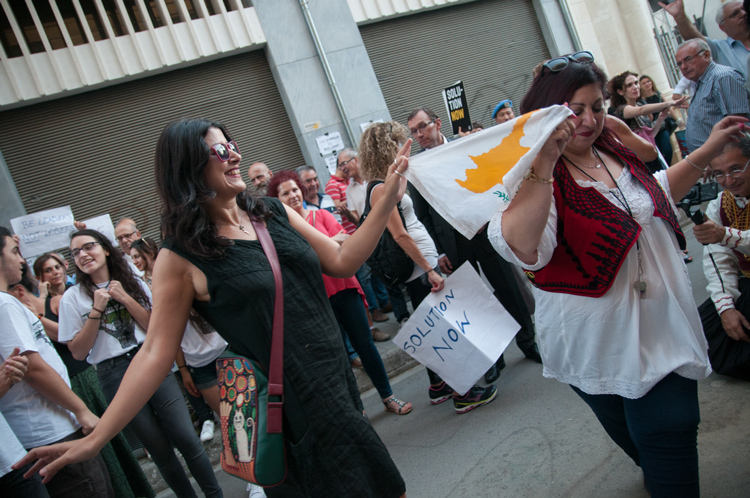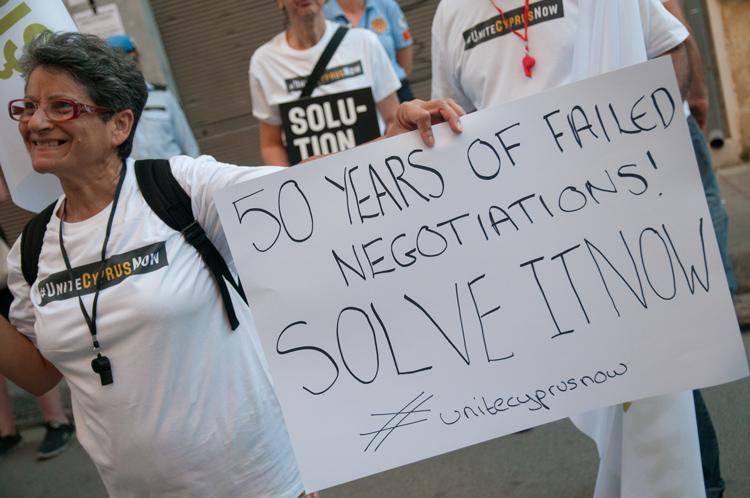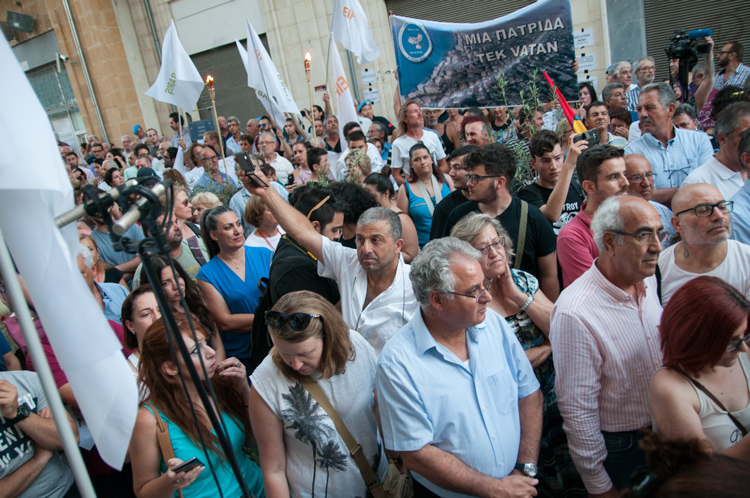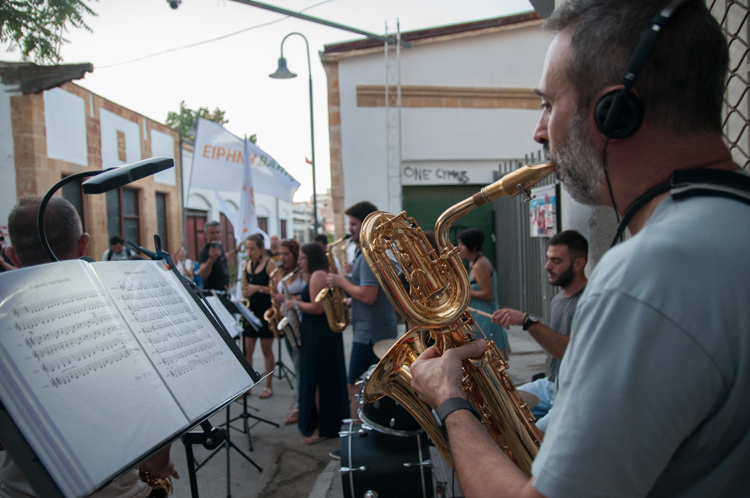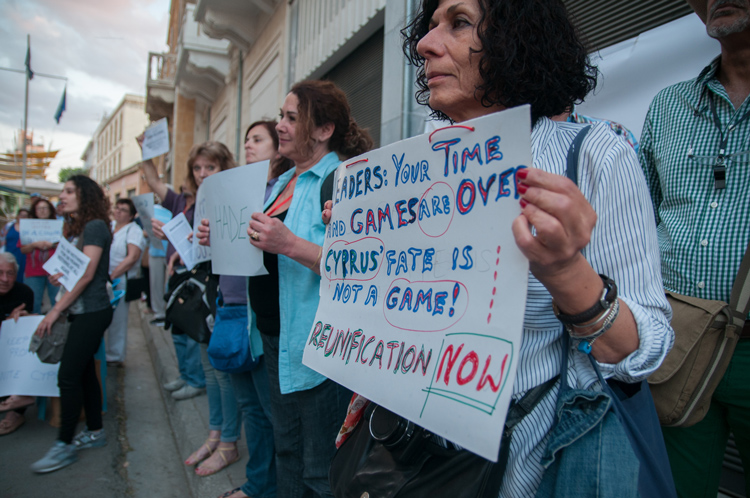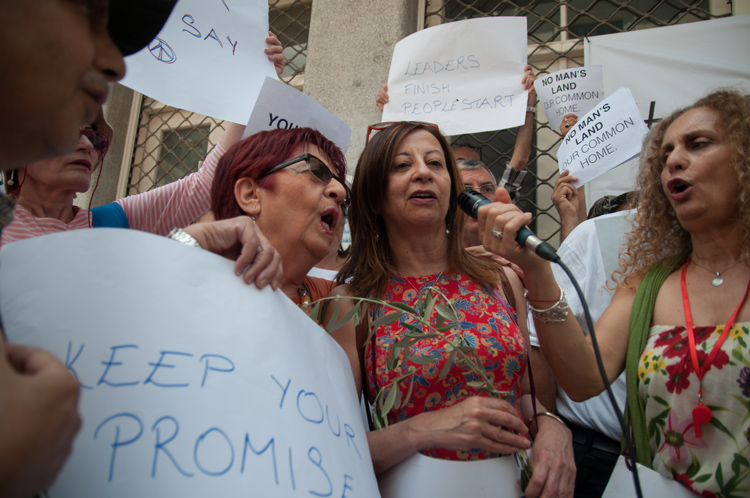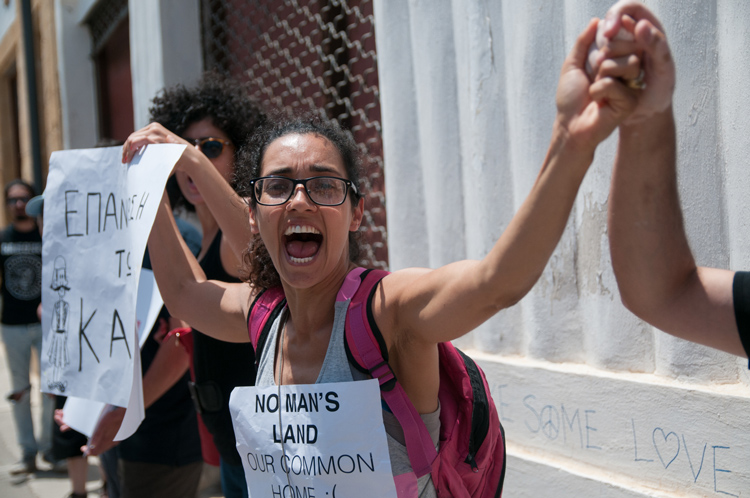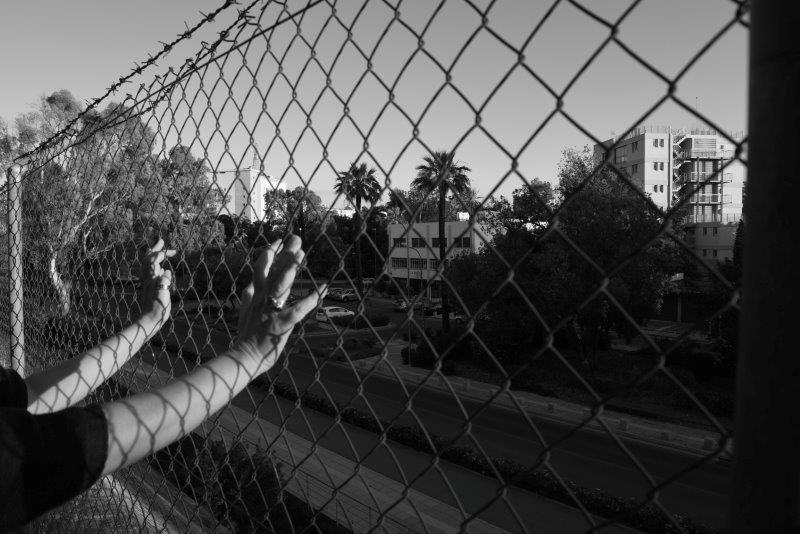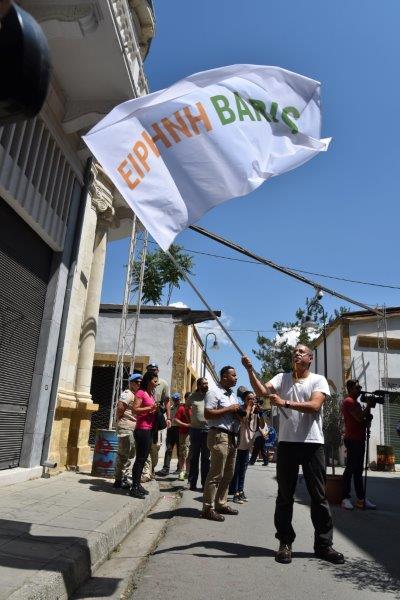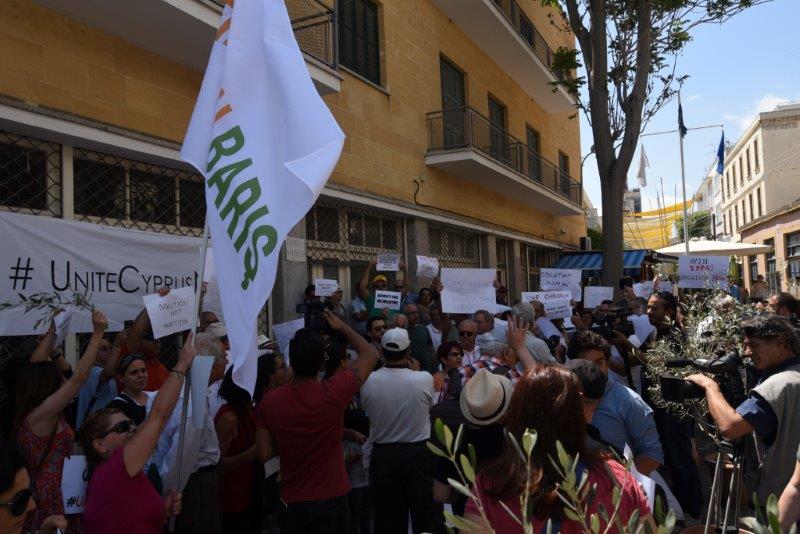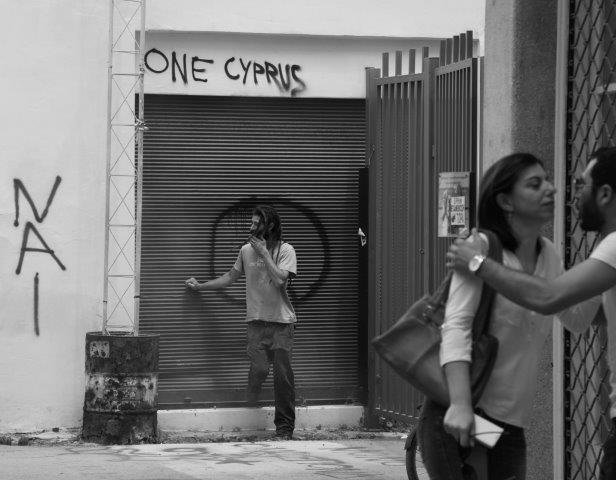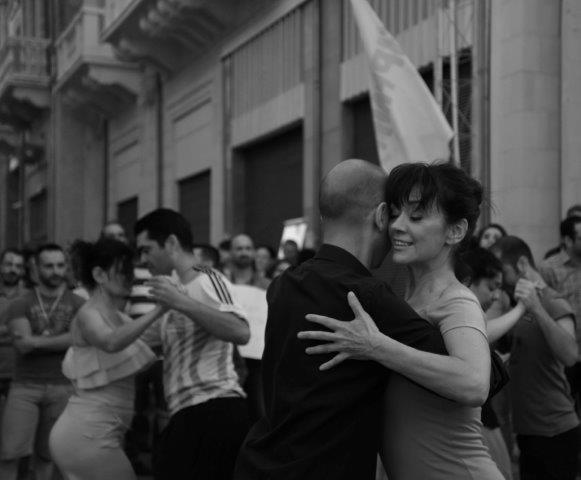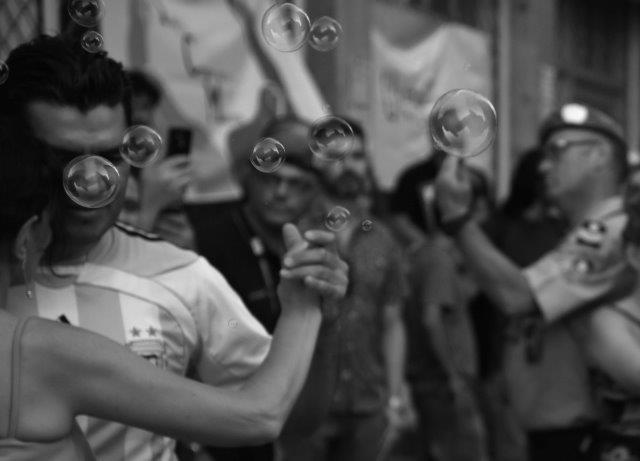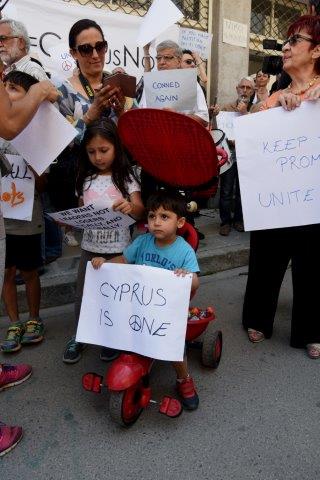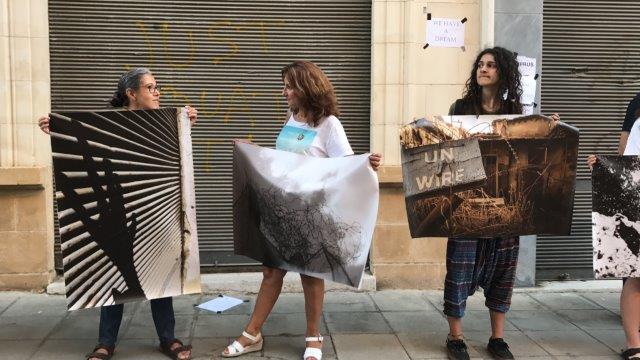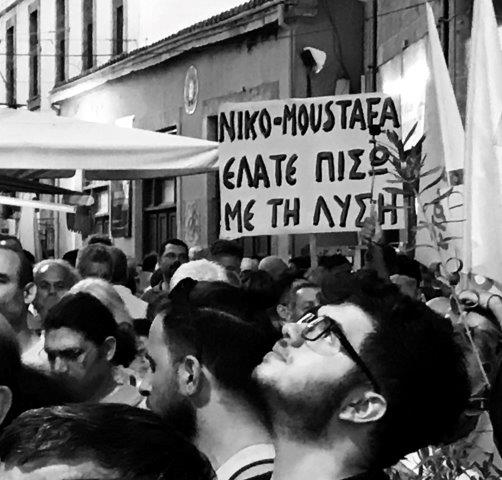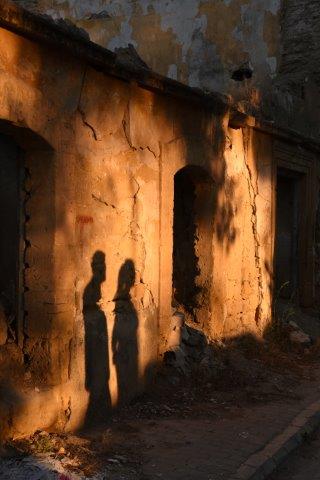Tijen Erol and Merobe Bobbe Theoklitou are both from Cyprus. Since 1974, Cyprus is a divided country so one of them lives in one side and the other one lives in the other side of the island. They are both photographers and they are both sharing the same desire for a united Cyprus. Here is an interview with them telling us about the campaign “Unite Cyprus Now”, about reconciliation and how a joint future of peace can be achieved through education and by understanding the past.
What does it mean for you to reunite Cyprus and how can you reach reconciliation?
Merobe: Cyprus became an independent state on August 16th 1960. It remained as a single entity until 1974 when Turkish troops invaded and occupied 40% of the land. To reunite Cyprus all troops must leave Cyprus, and all Cypriots, Greek and Turkish should be given back their right to live, work and own property wherever they wish. To achieve a reconciliation, sacrifices about the land and the constitution need to be made. However the major issue for us Cypriots, who lived through the 1974 coup followed by the invasion of the Turkish army, it is safety. Cyprus is a European country and our guarantee for safety should come from Europe.
Tijen: For me a reunited Cyprus means that there are no borders of any kind. To do so we should not hide but have to understand our past, to be able to break the bonds with it. If you hide your past and do not get any lessons, you are more likely to repeat it. So the most important thing to break the physical walls or the walls in the minds is education. Peace education will bring peace and reconciliation to this island. The nations sharing this island should come together to find a common ground with understanding and love. Without reconciliation there will be no reunification in this island.
When and how the mobilizations for “Unite Cyprus Now” began and who participates?
Tijen: It started after the first collapse of the negotiations in Switzerland. It was May 2017 where the leaders announced that they will not find a common ground for the negotiations. After some time the leaders announced that they will come together again as they believe that an agreement is achievabl. However, after giving so much hope to the people of the island, they collapsed again leaving behind no hope for the people of this country. As an individual, I believe that I have a responsibility for the young generation and that is why I am there demonstrating and all the people who feels the same responsibility should be there. Small things can lead to big things.
Merobe: The mission of “Unite Cyprus Now” is to connect Cypriots by seeking the truth, building empathy, respecting diversity, reinforcing solidarity and promoting a joint future.
What kind of activities you organise and what are your plans for the future?
Tijen: “Unite Cyprus Now” comes together in the Buffer Zone which is the area between the Greek and Turkish Cypriot checkpoints. This area is just a small part of the UN controlled area (Buffer Zone) which is about 200 km long throughout the island and covers about 350 km². We come together and sing, hold placards giving the messages, dance, organise children games and many more activities to be able to grasp the attention of the people crossing over to “the other side”. This section of the Buffer Zone is one of the checkpoints of the seven in total that is most commonly used for the pedestrians.
Merobe: Greek and Turkish Cypriots started meeting in the buffer zone of the Nicosia Ledra check point. We exchange ideas, make friends and create get together events, like Cypriot traditional song concerts, dancing, games for kids, photo exhibitions etc.
What are your requests to your governments?
Merobe: We demonstrate and demand from our governments to give us a solution and a better future for us and our children. A delegation was present in Crans Montana during the talks.
Tijen: We ask our leaders to create an island where the young generation will find a peaceful future. This island do not belong to one nation but we have a diversity of people living like Maronites and Armenians who also are sharing the history of this island and by accepting the diversities we will bring peace and reconciliation in this island. We tell our leaders that mistakes were made by the governments and leaders at the past and we have had enough of suffering. Now it is the time to look to the future and create a world of peace and reconciliation in this island for the future of the young generation.
What are the feelings that the buffer zone creates to you?
Merobe: Where there is war there was once peace and where there is peace there was once war. The Green line, guarded by the UN since the invasion, is the buffer zone that prevents Cypriots in the North and South from moving freely in their homeland. It is the bleeding wound which splits Nicosia, the last divided capital, in two. We go about our daily lives ignoring its existence, how else we can survive? But when I go there with my camera then the wound starts bleeding again.
Tijen: The physical and communal division for about 30 years brought about a lack of communication between the two communities in this island. For these many years a new generation grown up learning from the biased history books injecting hatred and this division pulling the communities further apart creating a generation hating each other. I believe that this line, although today have many checkpoints allowing people to cross over, makes the communication of the communities difficult and still puts blocks between them.
What messages do you receive from young people?
Tijen: They have to learn about the past not for enmity or revenge but to be able to understand the past in order not to repeat the mistakes of it. The new generation is luckier than we were. They have more communication tools and more chances to come together in a common ground. We, as a generation that was not allowed to have any kind of communication for about 30 years with “the others”, we are just trying to catch up with the years we lost and to understand “the others”. The young generation now has a chance to come together at the schools, cafes, bars, cinemas, etc. I see the youth going to the peace camps together to understand each other’s diversities as well as similarities, to be able to understand the Cypriot identity and this makes me proud. Education is the most important thing and our government should look how they use it as it can create or destroy peace. The young generation has to understand that what they need to do as individuals is to respect diversity. This is the only way to understand and create an empathy for the others’ beliefs, cultures and their way of life. For a successful future for the Cypriots we should be educated to feel as one without any nationalistic upbringing. We have to be proud of our common identity, which is the Cypriot identity.
Merobe: We cannot know what will come next in these times of great flux sweeping across our homeland and across Europe at large. But no matter what the future holds, the younger generations hold the potential for peace and unity, and the desire for a shared identity and a shared future.
For more information about “Unite Cyprus Now” and their activities you can visit their Facebook page.


